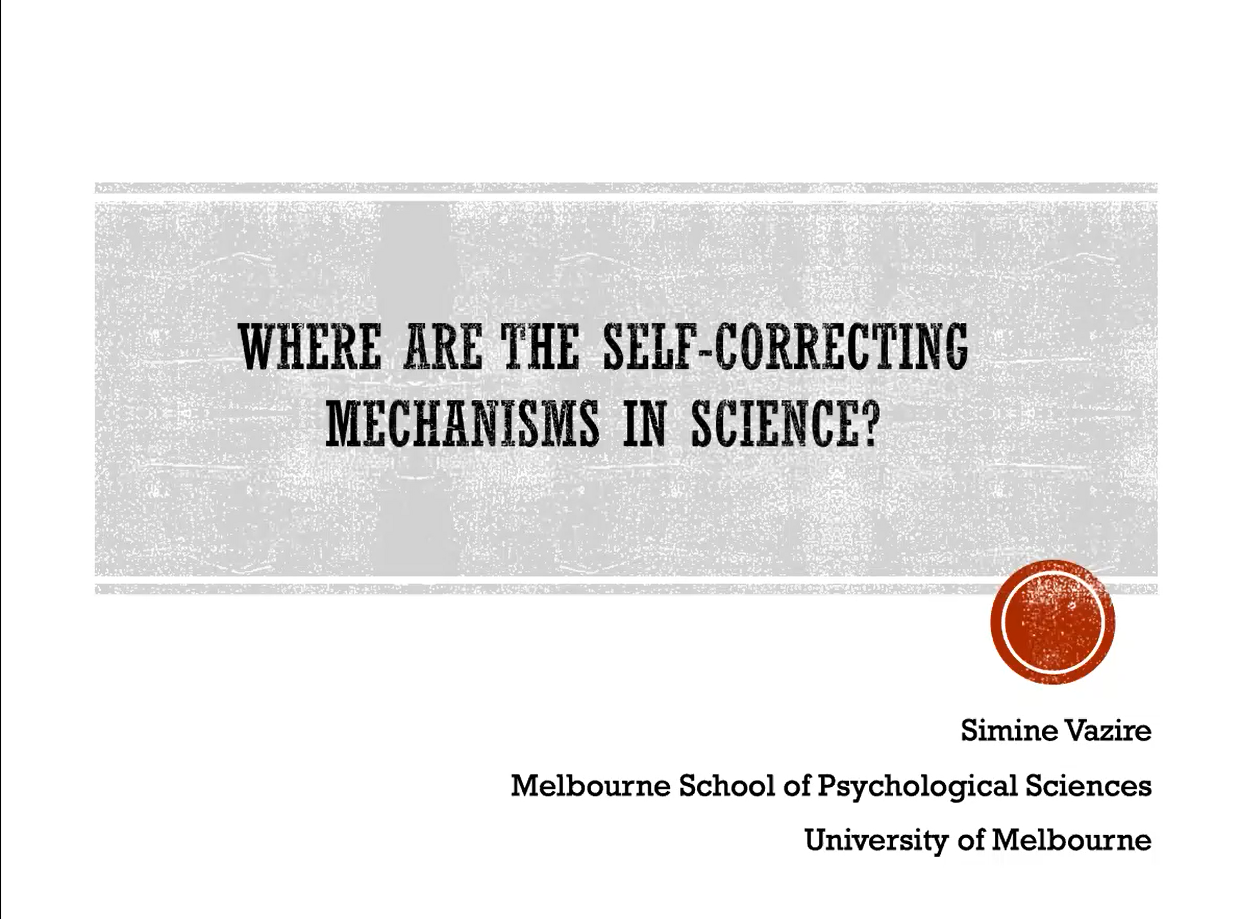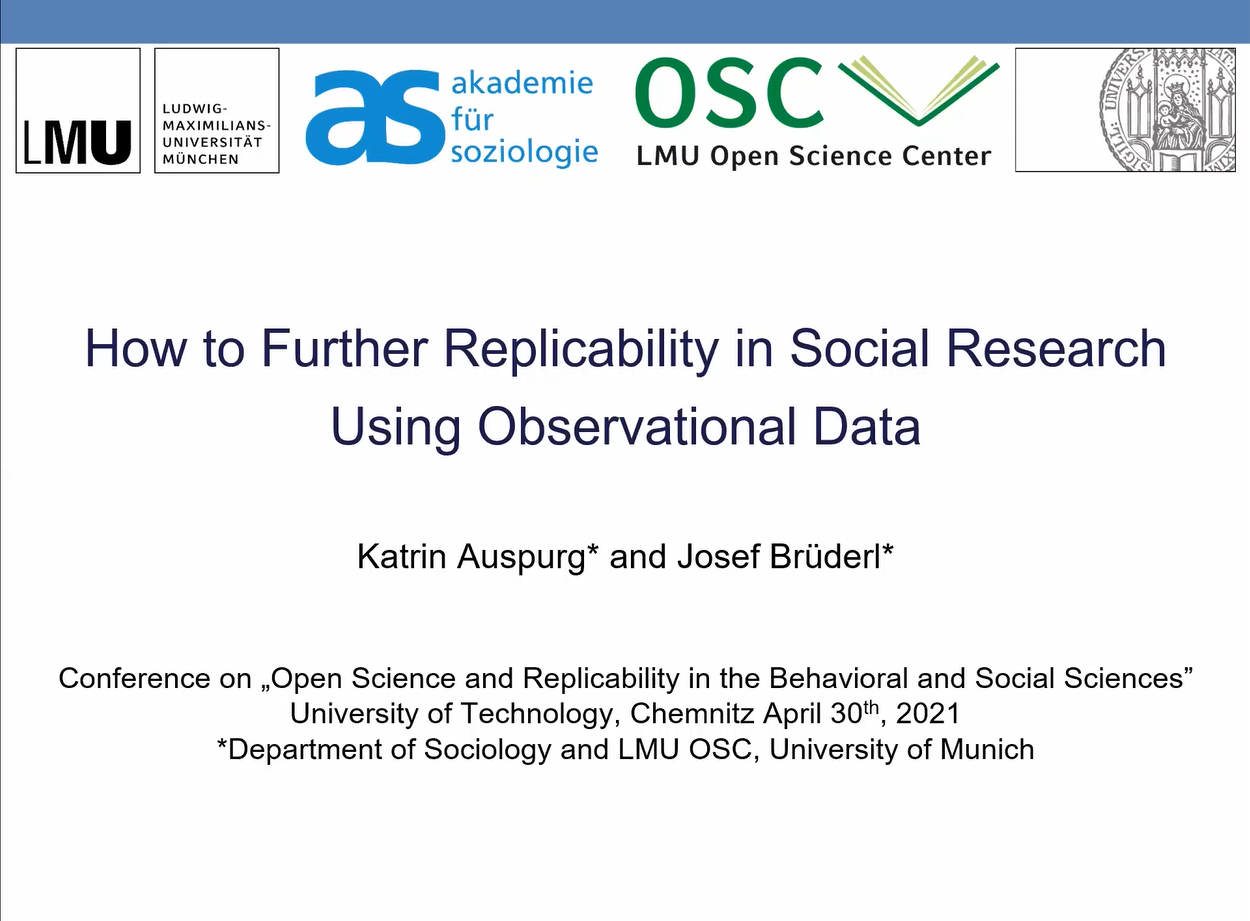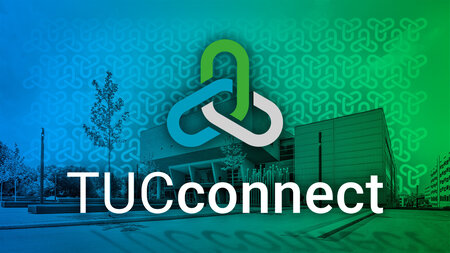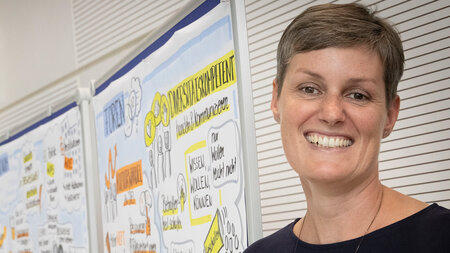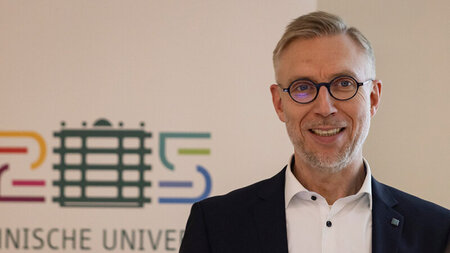Methodische Mediathek
Das MethodenKompetenZentrum bietet regelmäßig Vorträge zu Themen der empirischen Sozialforschung an. In diesem Rahmen freuen wir uns Ihnen einige ausgewählte Mitschnitte zur Verfügung zu stellen.
Open Science
How to Further Replicability in Social Research Using Observational Data Katrin Ausprurg
Conference Keynote "Open Science and Replicability in the Behavioural Social Sciences" 30 April 2021 Prof. Dr. Katrin Auspurg, Chair of Quantitative Empirical Research, Ludwig-Maximilieans-Universität Munich, Germany Prof. Dr. Josef Brüderl, Chair of Quantitative Research on Inequality and Families, Ludwig-Maximilieans-Universität Munich, Germany
Since several years, psychology has its so-called credibility crisis: Many results of experimental studies coult not be replicated by other scientists. In other disciplines this discussion has gained considerable momentum as well (e.g., economics and medicine). In this talk we will first discuss that there are good reasons to believe that social sciences that use non-experimental, observational data also have a credibility problem. Faulty results likely result from errors or misspecifications of regression models. These credibility problems were probably mostly overseen because most replication audits so far focused on experimental data. Using the example of sociology, we will illustrate the missing credibility of studies based on observational data by some examples: There is meanwhile some evidence for low reproducibility of sociological research and questionable research practices seemingly have been widely used. In the main part of the talk we will then argue that credible social sciences need to be more transparent, open, and replicating. We will suggest several measures by which such open science practices could be furthered. A common theme will be that open science practices show features of a social dilemma. Therefore, moral appeals alone will not be sufficient. We additionally need changes of institutions that increase the opportunities and incentives for open science practices.

